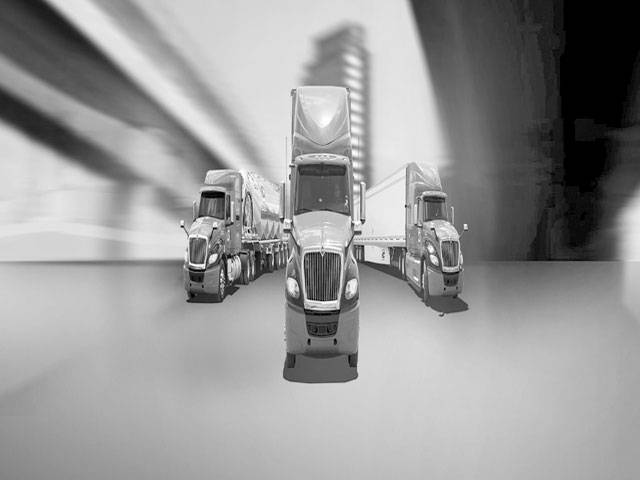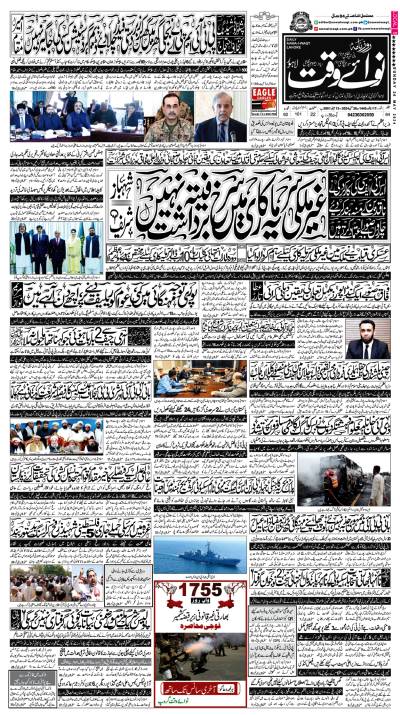The transport sector always plays an essential role in enhancing the international competitiveness of an economy and it is crucial for the efficient functioning of the supply chain.
In developing regions effectual transport networks lessen production and transaction costs which also serve as a stimulus for the economy. The transport sector got the limelight owing to growing economic interdependence through an increasing volume and variety of cross-border.
Inefficient supply chains through high transport and logistics costs could hinder exports and import flows which may surge cost for firms especially those competing in the export market. The mode of transportation through road normally takes twice as long as they would in Europe owing to an obsolete fleet and poor and defective infrastructure.
This is one of the biggest reasons that Pakistan has failed to integrate into the global supply chains, which require just-in-time delivery. Another factor contributing to the incompetence of the Pakistani transport system is the fact that the local markets are not fully integrated. The Pakistan trucking industry is extremely scrappy with a large number of small operators and very few large and medium-sized operators.
Freight rates in Pakistan are also one of the lowest in the world. In order to maximise profits, the truckers tend to overload which in turn raises the cost because of the infrastructure degradation. Another main obstacle in this regard is the lack of reliable information on the sector. There is an incongruity in the number of total trucks in Pakistan with different studies quoting different figures.
According to available data, there were a total of 223,152 registered trucks as of 2011 while the Government of Pakistan estimates that only 93 per cent of these are actually plying the roads the rest of the 7 per cent being inactive due to poor condition. Another study quotes that Pakistan has 293,000 commercial cargo trucks operating. The discrepancy of figures reveals that there is a lack of accuracy in the available data due to the informal nature of the trucking sector. There is also a lack of research on the freight transport sector of the country.
Pakistan has been facing poor markets from decades and inadequacies in these have resulted in hindering the growth of the economy as a whole.
According to available data, about 30 per cent to 40 per cent of agricultural production is wasted due to bungling farm-to-market channels. An unproductive, outmoded, and ill-equipped transport sector is the main reason behind this wastage. High road density for any country is an indicator of affluence and development. the available data showed that Pakistan has a road density of 0.33Km/Sq with a total road network of around 263,942 Km.13 Road density in Pakistan is among the lowest in the region (33 per cent) compared to 133 per cent in India and 150 per cent in Sri Lanka.
In Pakistan road transportation is the most important mode of transportation, roads handle approximately 96 per cent of the total freight traffic as per the data given by the Government of Pakistan in 2010. The busiest route is the north-south route of N-5 highway that is the longest route comprising of 1,760 KM and runs from Karachi to Torkham.
According to PAMA i.e. an association of auto manufacturer, the total number of trucks manufactured from 1995-96 till 2014-15 are 53,460, the data of total trucks produced show an increasing trend post 2012-13. Moreover, Pakistan has a free market highly competitive at all levels, with low cost. Indeed, 79 per cent are owners operated with 1-5 vehicles, 20 per cent are fleet owners with more than 10 vehicles, and 1 per cent is composed of large companies with more than 100 vehicles. Ironically, the trucking companies are primarily small-sized (1-5 vehicles), unregistered, and non-taxpaying. These are players of an informal sector that depends on freight brokers and subcontracting to large companies to secure business.
Small operators, low barriers to entry, and low freight rates are the main hiccups behind the fragmentation of the trucking sector. According to the data road, freight rates in Pakistan are among the lowest in the world with an average cost of $0.015 to $0.021 per tonnes/kilometre. Trucks operate long hours and carry excessive loads while travelling at low speeds, ranging between 20 and 25 kilometres per hour compared to 80-90 kilometres per hour in Europe.
A journey in Pakistan takes three times longer than in Europe. Road freight takes 3-4 days between ports and the north of Pakistan. In addition to that trucks’ repairs need due to overloading also extends the transport time. The reason for the lesser increase in freight as compared to an increase in weight is explained through the phenomena of overloading. Truckers believe in order to maximize their profits. Considering the magnitude of China Pakistan Economic Corridor (CPEC) the aging fleet of vehicles used by the trucking industry is least prepared to undertake cross-border transportation envisioned under the mega-project.
If Pakistan wanted to procure the benefits of cross-border trade under CPEC, it should implement the trucking reforms policy. It should provide relief in duties on the import of trucks and impart training to the drivers to improve their driving skills as well as learn the Chinese language. The obsolete trucking system has incurred huge losses to Pakistan as it was losing two per cent of its GDP, damaging its national highways, wasting agriculture products, and increasing its carbon footprint.
Lack of seriousness at the policy-making level is the biggest hiccup as it could be gauged from the fact that the development budget of Rs2 trillion had been announced in past and no money was allocated for the economic zones in PSDP. Supply chain experts believe that Pakistan has a good can still boost its economy and improve the transport sector by developing its trucking industry on modern lines.
They said that there were around 1,200 to 1,500 logistics companies working in Pakistan but the drivers are untrained to undertake cross border trade. A senior analyst Aamir Iqbal Malik, who is also the CEO of Time and Tune Freight Solutions, said that Pakistan should ratify all the international conventions related to the trucking industry and customs as integration with the global market is impossible without these steps. Highlighting another issue, he said that currently, the logistics industry has no representation at the policy-making level making things more complicated for the logistics companies. The trucking industry needs to upgrade and diversify its fleet of vehicles that are roadworthy, compatible with international standards, and follow the axle regime. This could be done through reformative steps for expansion of the industrial base, development of the skilled human resource, trade-friendly culture, he suggested.
–The writer is a freelance contributor.






